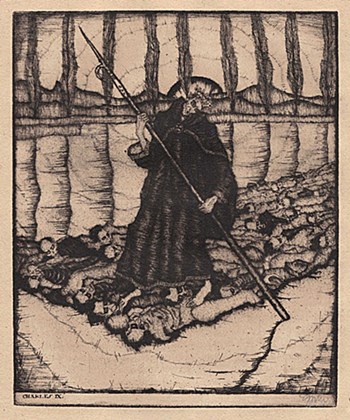Campbell, Ramsey - A Little Green Book Of Grins And Gravity
To be honest, this could be renamed, as it is on the running headers, The Enigma Of The Flat Policeman.
This was an unfinished draft by a talented thirteen year old, who, at the time, was devouring books by John Dickson Carr. A year or so later, he discovered Lovecraft and set course in another direction.
So, how is this novella?
It is immature, derivative, and maddeningly interesting.
What fascinates are the interspersed editorial comments, trying to elaborate on the young author’s influences, reactions, relationships.
Obviously written decades later, it is clear that more than a little thought went into these. Perhaps the old master still has fondness for the young writer.
The insights are generous. For tentative writers, the comments regarding what sources and wellsprings were drawn from, are enlightening.
Campbell, Ramsey - Ancient Images
Old fashioned creep yarn about suppressed horror film starring Karloff and Lugosi.
When a print surfaces, it immediately disappears and the owner is found dead.
A friend begins investigating and discovers a trail of death. Most of those involved with the film had died under mysterious circumstances.
Of course, she firms her resolve to find that film, despite mounting warnings!
Campbell works with hints, suggestion, and the half seen.
His work is not the compact, blood soaked style still in vogue in one arm of modern Horror.
This work, from 1989, owes quite a bit to Basil Copper’s “Amber Print” a decade earlier.
Before that, however, was M. R. James’ “The Mezzotint”.
Sideshow thread of gypsy caravan never worked into the plot properly for me.
Found the main character clueless and ignorant, making fool decisions.
Poor resolution.
Campbell, Ramsey - Scared Stiff
Not as in fear firms your resolve, or when frightened, stand straight!
Stiff, as in, did you know your codpiece swelled to a jumbo when you were scared?
Seven tales of horror and carnality, and not soft focus, veiled, slow motion rompings.
Less romance, more rape. Little passion, accent on penetration.
Campbell mixes cruelty, revenge, disappointment, resignation.
To my mind, the best stories bookend the collection.
“Dolls” occurs in the past, in a rural setting, where pagan circles gather.
“Merry Way” lures a disenfranchised, naïve city innocent to the pleasures of the Maypole.
My copy was illustrated throughout by J. K. Potter.
Text and art are something between erotica and porn.





